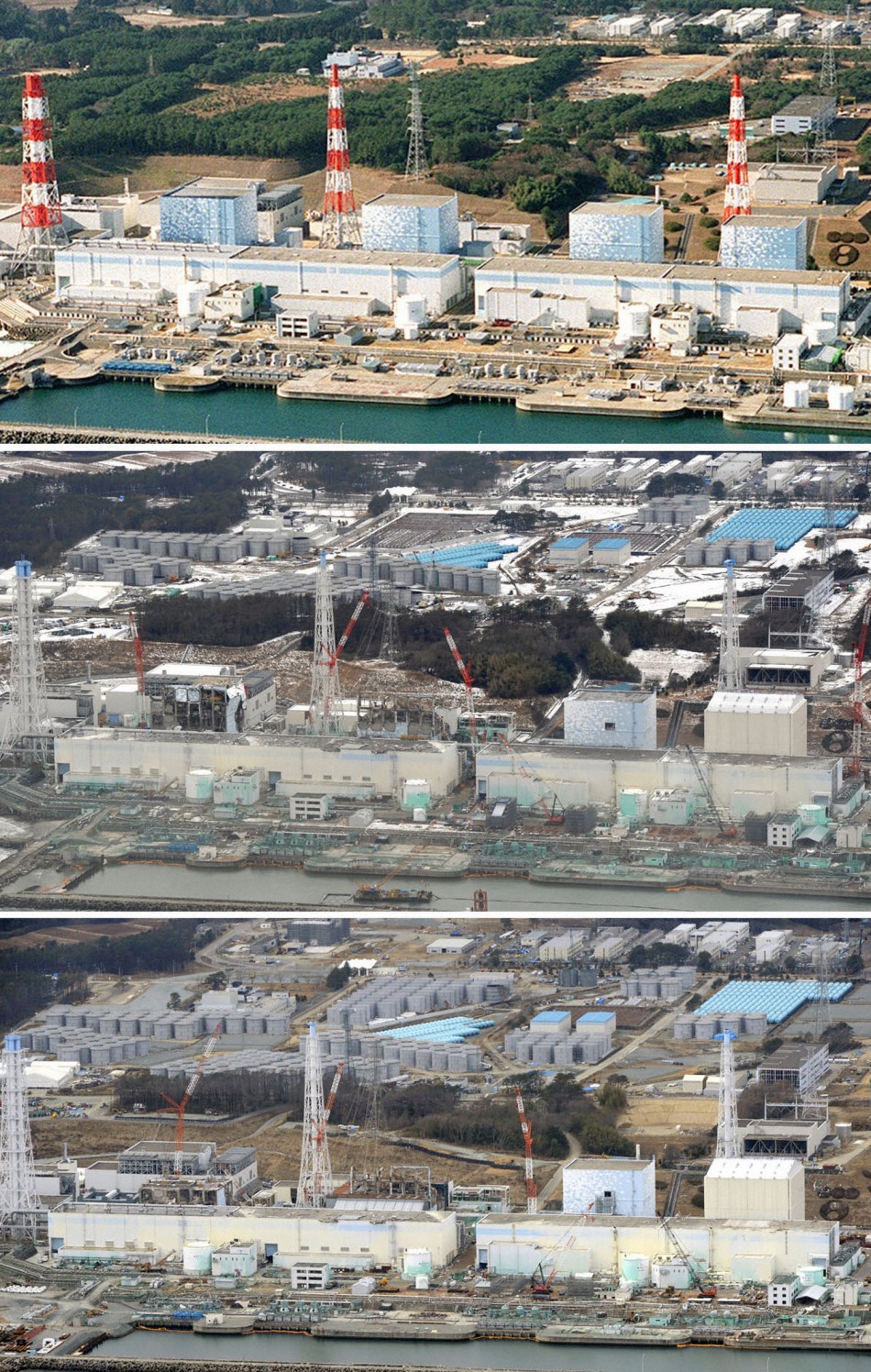Japan Marks Second Anniversary of Tōhoku Quake and Tsunami and Fukushima Nuclear Meltdown [VIDEO]
Japan observes minute's silence in tribute to victims and survivors of disaster
Memorial services were held in Japan to pay obeisance to the 19,000 people dead or still missing, after the devastating earthquake and tsunami that struck two years ago.
People observed a minute's silence to mark the second anniversary of the disaster at 2.46pm (5.46am GMT), which was the exact time the Tōhoku earthquake struck.
Japanese Emperor Akihito paid his respects to the victims, saying: "I pray that the peaceful lives of those affected can resume as soon as possible. I am always deeply moved by seeing how so many people lead their daily lives without complaining."
The BBC believes official reports say as many as 15,881 people died and a further 2,668 are still missing.
The quake and tsunami also lead to a meltdown of three nuclear reactors at the Fukushima Daiichi Nuclear Power Plant complex and a failure of the cooling systems meant the world experienced its biggest nuclear crisis since Chernobyl in 1986.
A memoriam aside, affected Japanese citizens are concerned the government has yet to begin development and re-building works in some areas. An Associated Press report states as many as 300,000 people, along the north-eastern coast, are still without a home and local fishing communities struggle to reclaim even a semblance of their former lives.
The situation is as bad further south, in the Fukushima prefecture. AP believes 160,000 people remain displaced and residents say they have lost faith in the government, particularly after conflicting reports over levels of radiation leaking from the nearby nuclear plant.
The good news is there have been no radiation-related cancer cases reported but the affected population continues to be haunted by those disastrous days and say the lack of support or empathy from the government has done nothing to help them recover former lives.
New Government: New Hope?
In December 2011, Japanese Prime Minister Shinzo Abe promised to expedite reconstruction process and raised the budget to 25 trillion Yen (approximately £175bn). And speaking at the service, he once again spoke of speeding up the reconstruction process.
However, Japanese citizens looking for a speedy resolution will likely be disappointed, according to Hieroshi Suzuki, the chairman for the Fukushima Prefectural Reconstruction Committee.
"There have been no major changes by the new government in response to the nuclear accident, though the budget has been increased," he said, "If the reconstruction budget continues to serve as a tool for expanding public works spending, then I believe local societies and economist will be undermined."
Meanwhile, check out these photographs of the second anniversary of the tragic Tōhoku quake, tsunami and nuclear disaster...








© Copyright IBTimes 2025. All rights reserved.





















